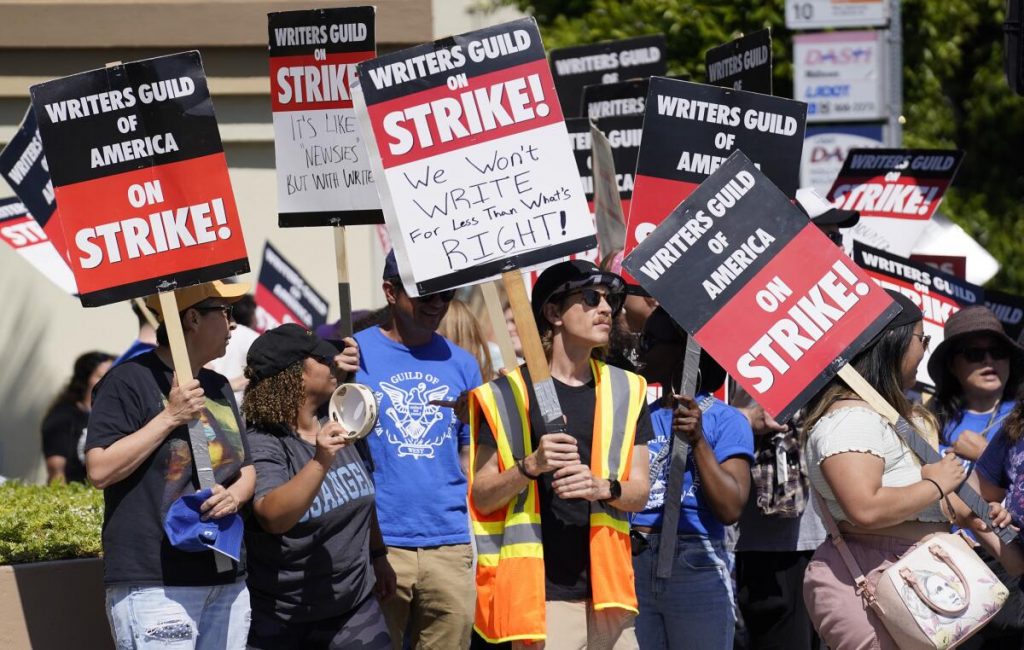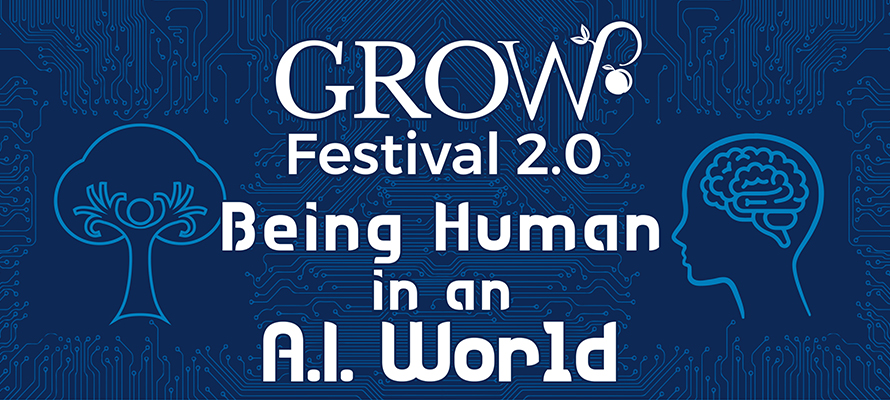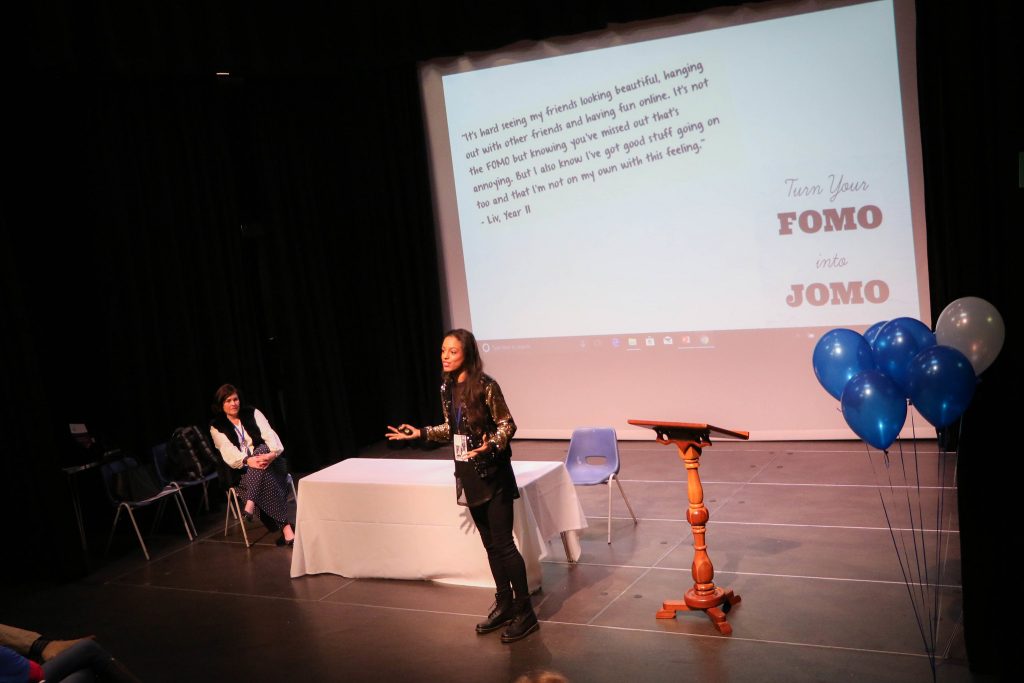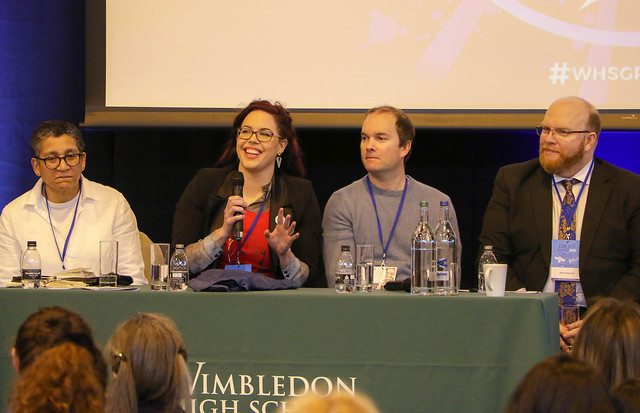Written by: Emilia Lovering
N.B As of the date of writing this article, negotiations between SAG-AFTRA and Alliance of Motion Picture and Television Producers (AMPTP) are still ongoing.
As many of you may be aware, this summer saw almost unprecedented levels of striking in Hollywood, as both the Writers Guild of America, as well as the Screen Actors Guild – American Federation of Television and Radio Artists both went on strike, protesting working conditions in Hollywood. This article seeks to examine the causes, impacts and results of both strikes.
WGA Strike:
The 2023 Writers Guild of America Strike is the largest strike action taken by screenwriters in America since the 2007-8 strike over residuals based on DVD selling, as the Guild argued that residuals were a key part of any writer’s income. Also, in this strike it was agreed that all streaming cinemas were subject to the Guild’s Minimum basic wage. However, in 2023, this agreement has not stood the test of time subject to new streaming services, as the amount of media that was put out straightaway instead on cable TV increased dramatically. Essentially, this means that more and more writers are being paid a minimum salary for the work that they do. Additionally, streaming services are much more likely to offer fewer writing jobs and shorter contracts – effectively becoming gig writers. Reducing writers’ rooms and the amount of time writers are able to spend on set dramatically decreases the options available to new writers coming into the industry, as they are offered much less experienced than their more well-established counterparts. Instead, unpaid internships have been offered by studios to ‘allow’ a writer to visit the set on the show that they effectively helped come into being. Moreover, the strike comes at a time where there is growing concern about automation in creative industries, where AI is being produced that creates scripts far closer to one created by a human in the industry – however, due the nature of Ais, such as ChatGPT, this work is able to be produced by sampling already-written works. Therefore, AI is at risk of taking writers jobs and using their intellectual properties, without giving writers due credit. The lack of respect given to writers by Hollywood is intolerable, with President Carol Lombardini of AMPTP saying, that writers should be grateful to have “Term employment.” (Thurm, 2023).
Thankfully, after what became the second longest strike in Hollywood industry AMPTP and the WGA finally reach an agreement. Although the exact results and wording of the agreement has not been released, we do know that the negotiation results in increases to minimum wage, compensation, pension, health fund rates, length of employment, size of writing teas and royalties. They also reached agreements regarding social media, where AI is banned from being used to exploit writers, although the writers themselves may be able to use ChatGPT in their own work. (Bar, 2023)

(Chris Pizzello / Associated Press)
SAG-AFTRA Strike
SAG-AFTRA faces similar problems to WGA, albeit from a different perspective. But much like the writers, they are also in disputes about residuals from shows – which are only guaranteed when shows are repeated on network television. On streaming services, the actor’s work can be kept up in perpetuity and they are not compensated for the levels of viewership, which is not shared by the networks. Despite attempts to resolve these disputes in 2019, the pandemic quickly shut down negotiations and undermined all progress taken. Similarly, actors receive far less of the profits of films when they are delivered straight to streaming – which many mid-budget films are. With streaming, actors face a flat payment whereas with cinema, the higher the box office takings, the more opportunity there is for an actor to be paid fairly for their contributions. And much like writers, the actors are at threat from the increased AI used in film. As I wrote about in 2022, regarding the use of ‘deep faking’ actors in film (insert link here), there is little to no legal protection for an actor’s image, which can be increasingly exploited by streaming services using new technologies. SAG-AFTRA is a union that may also be joined by influencers, which means that they also may be afforded greater security under possible agreements, yet, as many influencers have been involved in continuing to promote TV and film (forbidden under the SAG-AFTRA strike rules) they will banned from ever rejoining the union (Shoard, 2023).
Unfortunately for the actors and influencers, the results of the strike are still up for negotiation, yet AMPTP has now finally entered negotiations, willing to make new agreements.
Impacts of the Strikes:
Whilst the strike has been a triumph for the WGA, and will hopefully mitigate the effects on streaming and AI on the creative industries, there have been many serious effects for the creative industries. During the strikes, many film and crew workers in Hollywood, who also are facing unfair pay for the work they do, have been out of work for months. Many remain wholeheartedly in support of strike, yet thousands of dollars of income have been lost, not just in California, but also for the 1.7 billion people who work in the film industry outside of the state (Wilson, 2023). Many jobbing actors also are facing financial pressure, as the vast majority of actors do not make the kind of salaries, we envisage them having – many are having to rely on foodbanks and charitable donations in order for the strikes
to continue. Even UK film and TV workers have been forced to find new jobs and claim benefits due to Hollywood strikes (Breese, 2023). In order for the film industry to recover, AMPTP need to realise the value that writers and actors hold for Hollywood and compensate them fairly, before it becomes too late, and the film industry faces a max exodus of employees.
Bibliography
Bar, N. (2023, September 28). The Hollywood’s writers’ strike is over – and they won big. Retrieved from Vox: https://www.vox.com/culture/2023/9/24/23888673/wga-strike-end-sag-aftra-contract
Breese, E. (2023, September 16). UK film and TV workers forced to find new jobs and claim benefits due to Hollywood strikes. Retrieved from Big Issue: https://www.bigissue.com/news/employment/writers-strikes-uk-tv-film-industry-jobs-benefits-hollywood/
Shoard, A. P. (2023, July 14). The Hollywood actors’ strike: everything you need to know. Retrieved from The Guardian: https://www.theguardian.com/culture/2023/jul/14/the-hollywood-actors-strike-everything-you-need-to-know
Thurm, E. (2023, May 5). All About the Writers Strike: What Does the WGA Want and Why Are They Fighting So Hard for it? Retrieved from GQ: https://www.gq.com/story/writers-strike-2023-wga-explained
Wilson, T. (2023, August 10). Hollywood strikes’ economic impacts are hitting far beyond LA. Retrieved from NPR: https://www.npr.org/2023/08/10/1192698109/hollywood-strikes-economic-impacts-are-hitting-far-beyond-la#:~:text=%22It’s%20devastating%20to%20this%20industry,of%20money%20lost%20is%20tremendous.%22



